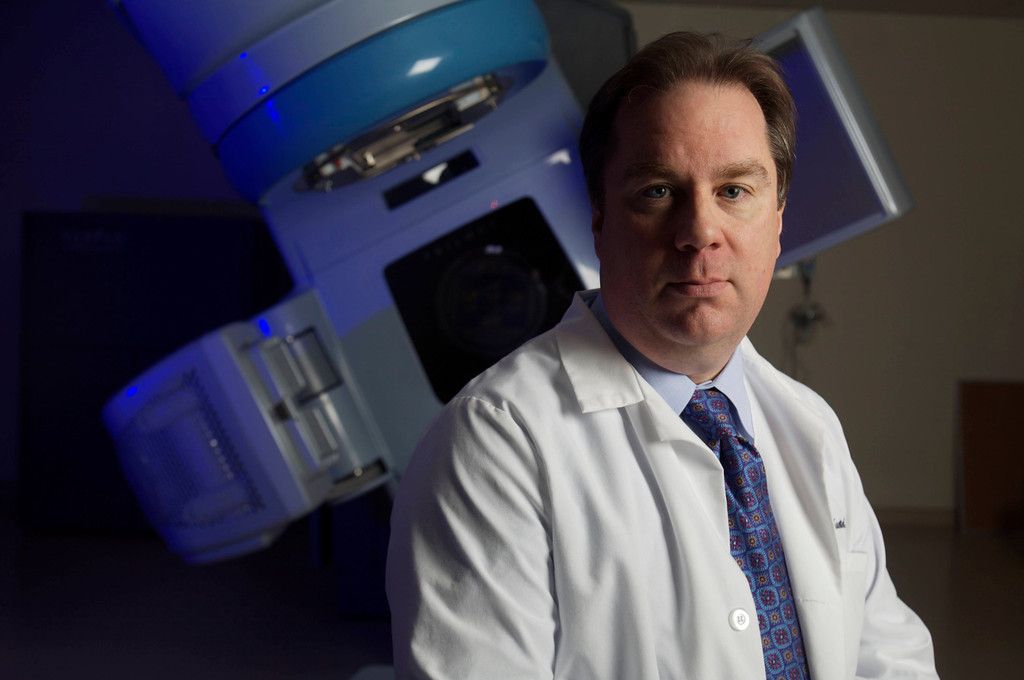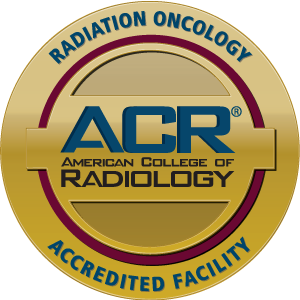Radiation therapy (also called radiotherapy) uses high-energy rays to kill cancer cells.
Like surgery, radiation therapy is local therapy. It affects cancer cells only in the treated area. At Roswell Park, a team of radiation oncologists and medical physicists and dosimetrists work together in one location to develop the optimal treatment plan for each patient.
Doctors may use different types of radiation therapy to treat penile cancer:
- External radiation: Focused from a source outside the body on the area affected by the cancer. There are many types of external beam radiation methods, including Intensity Modulated Radiation Therapy (IMRT), which allows different parts of the tumor and surrounding tissue to receive different doses of radiation. This reduces radiation damage to tissues near the tumor and improves effectiveness by increasing the dose of radiation delivered to the cancer.
- Internal radiation or brachytherapy (seeds): A small container of a radioactive substance is placed into or right next to the affected area of the body, which limits the amount of radiation received by surrounding tissue. Once the implant is removed, the radioactivity is gone.
Radiation medicine: It matters where you go for your treatment
If radiation therapy is part of your penile cancer treatment plan, choosing where to have your treatments is one of the most important decisions you’ll make. Consider these key points before beginning any treatment:
NCI-designated cancer centers are recognized for their scientific excellence and quality patient care. They are a major source of discovery and development of more effective approaches to cancer prevention, diagnosis and treatment and deliver these medical advances to their patients. A comprehensive cancer enter, such as Roswell Park, means the facility is also a leader in research, including laboratory, clinical, behavioral and population-based studies in addition to patient care.
Many penile cancer patients need radiation therapy in addition to chemotherapy and/or surgery. The type of radiotherapy you receive and the timing of it must be integrated with the other treatments in your plan. Having all these specialists on your medical team — surgeons, medical oncologists and radiation oncologists, plus immunologists, psychologists, nutritionists and social workers — working under one roof, and collaborating on a regular basis to assess and evaluate your treatment and day-to-day needs, provides the highest degree of comprehensive care.
You need and deserve to be treated by a team whose full-time job and primary focus is your care. Radiation therapy mandates accurate and careful planning, timing, dosing and marking with ultimate precision. Some treatment centers have multiple locations manned by just one physician and staffed by per diem or part-time personnel without the experience or specialty in radiation medicine.

